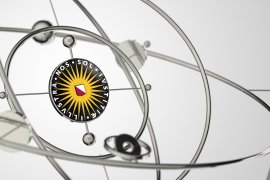Global Engagement at Utrecht University
At Utrecht University, global engagement thrives through a multitude of communities, initiatives, and projects: we aim to contribute to equal opportunities all over the world. With this engagement, it is the university’s goal to excel in research and education, and expand our horizon.
Global engagement can contribute to equal opportunities for partner institutions in lower resource environments, and it supports Utrecht University’s strategic goals to excel in research and education as an international institution of education and science.
Among these, UGlobe plays a pivotal role, coordinating various activities aimed at addressing global challenges. This way, like many individuals and teams across Utrecht University, insights from the Global South and beyond are integrated into educational endeavors and research pursuits. Collaborating closely with societal partners, UGlobe supports projects focused on research and education.
Find out more about Global Engagement
Goals
Utrecht University engages with the global community, and particularly the “Global South” because:
- Global engagement beyond Western Europe supports Utrecht University’s strategic goals to excel in research and education as an international institution of higher education and science.
- Global engagement beyond Western Europe can contribute to equal opportunities for partner institutions in lower resource environments.
Communities
Here's a snapshot of some of the communities within Utrecht University with a global outlook:

Julius Center: Healthcare of the future
Together with our colleagues of UMC Utrecht, the Julius Center works hard to improve patient care. As knowledge center for Health Sciences and Primary Care, the Julius Center conducts multidisciplinary scientific research into new diagnosis and treatment methods. They also give education to students of medicine and biomedicine, researchers, clinicians and other professionals in healthcare, as well as provide academic primary healthcare to patients. Read more.

International Development Studies at Geosciences
In an interconnected and changing world, it is vital to understand development as a dynamic and innovative process. Development of a people and places are constantly shaped and reshaped through various flows of capital, goods, people, practices, technologies and ideas. Addressing the challenges of persisting poverty, widening inequality and increasing vulnerability to financial and climate crises across Global South and North requires a deeper analysis of effects of translocal development in various geographies. Read more.

Netherlands Institute of Human Rights (SIM)
Established in 1981, the Netherlands Institute of Human Rights (SIM) is the key centre of expertise of human rights research and education at Utrecht University. SIM offers internationally oriented study programmes, conducts interdisciplinary research and organises a range of activities in the field of human rights. Read more.

Copernicus Institute of Sustainable Development
The Copernicus Institute is a vibrant international research community that aims to help accelerate the transition to a sustainable society. We do this by developing excellent and relevant knowledge, collaborating with citizens, politicians, policymakers, NGOs and firms to learn from each other and influence decision-making, and by educating the change agents of the future. Read more.




